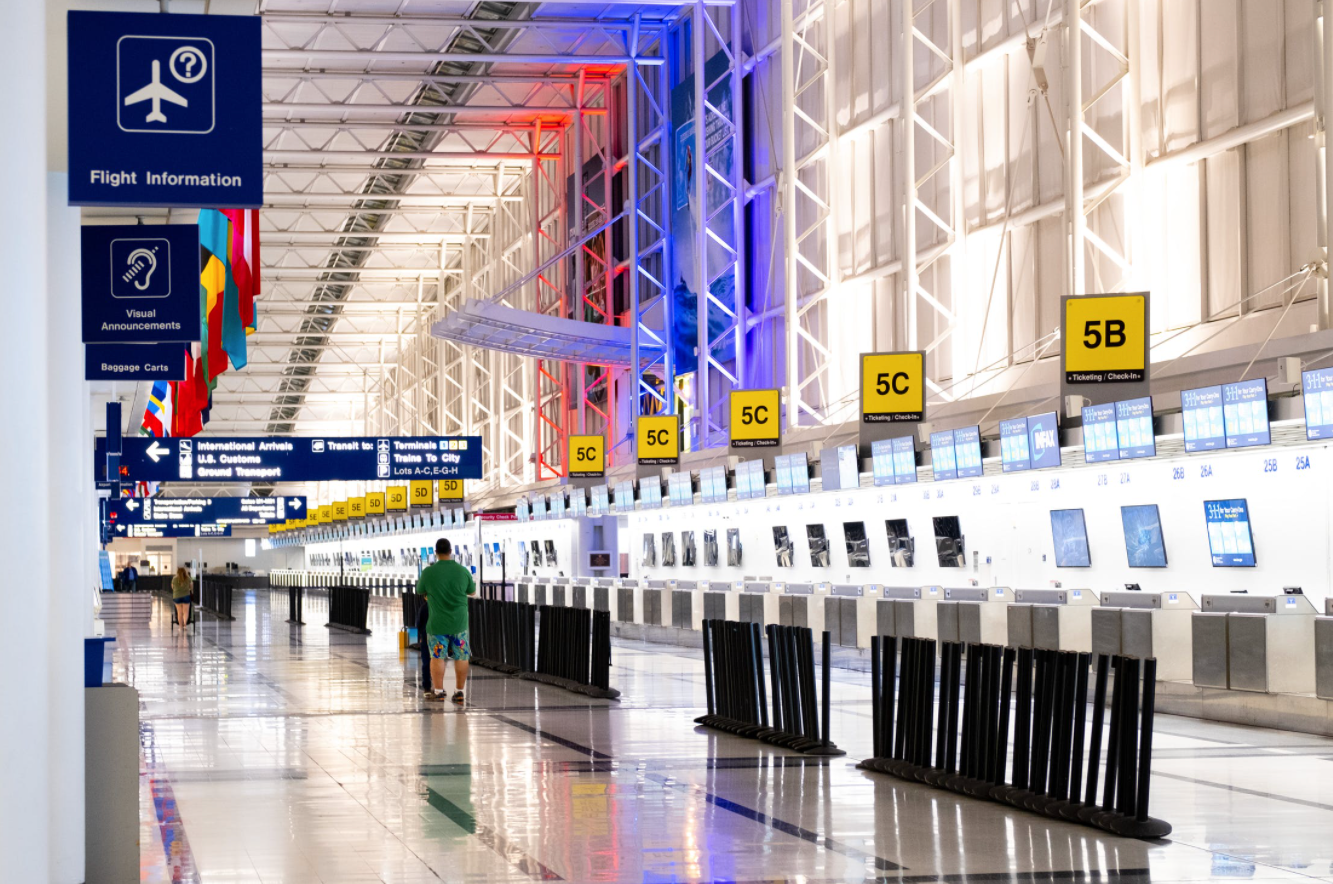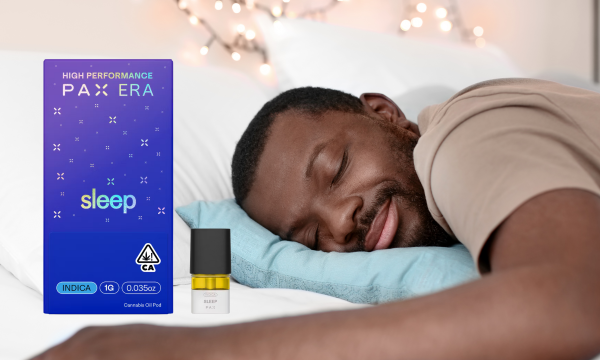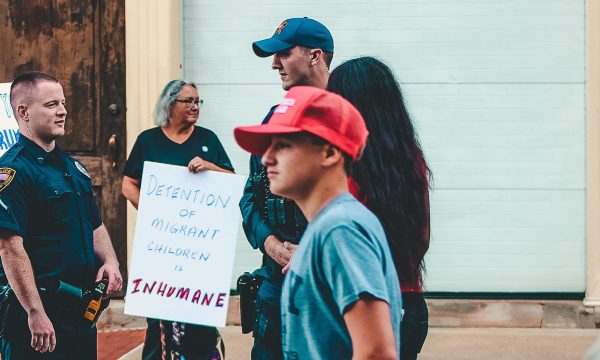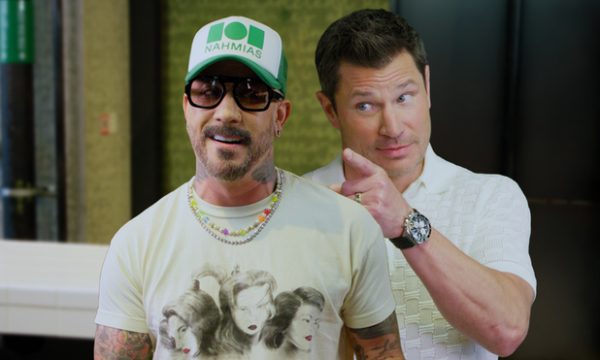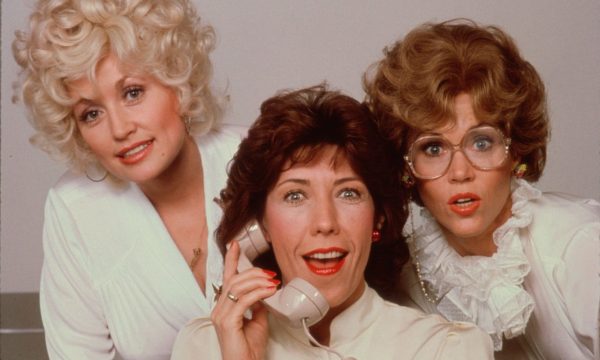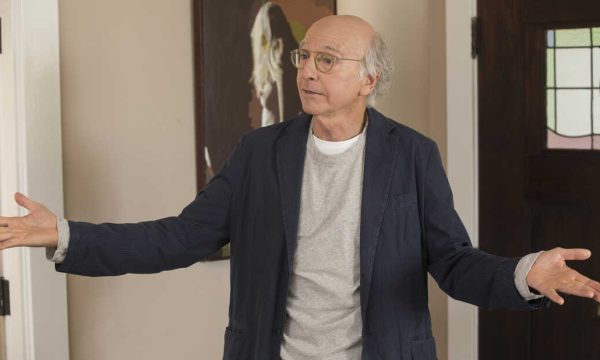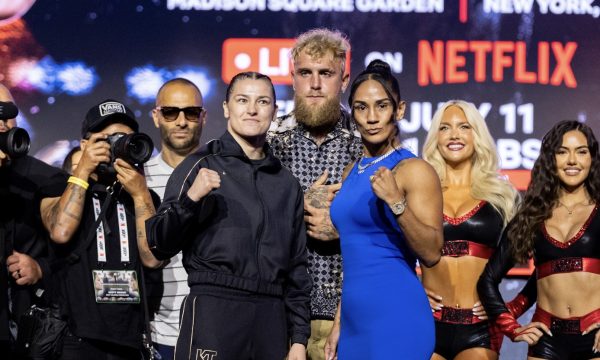U.S. Travel Association Executive Vice President of Public Affairs and Policy Tori Emerson Barnes issued the following statement on the Biden administration’s announcement that it would tighten the pre-departure testing window for entry to the U.S. from three days for vaccinated travelers to one day:
“We hope this measure to narrow the pre-departure testing window will be temporary until more is learned about the Omicron variant. In the meantime, the travel industry urges everyone to get vaccinated and boosted as soon as possible.
“It has long been known that measures to combat the virus and its variants would evolve and require us to be nimble and adapt.
“It is critically important that we communicate these policy changes clearly to global travelers and continue to welcome all qualified visitors to the United States.”
President Biden announced the following plans:
- Boosters for All Adults: President Biden will announce new steps to ensure that the nearly 100 million eligible Americans who have not yet gotten their booster shot, get one as soon as possible. As we face the Omicron variant, boosters are more important than ever. Boosters increase the strength of your antibody response, so when the virus mutates, a booster makes it more likely that your antibodies can protect you against the new variant. This week, the Centers for Disease Control and Prevention (CDC) issued updated guidance recommending that every adult get a booster. All adults who completed a primary vaccination series with an mRNA vaccine at least six months ago and those who received a Johnson & Johnson shot at least two months ago are eligible for a booster. The Biden Administration has made booster shots free and convenient at over 80,000 locations nationwide. To date, over 41 million Americans have already received a booster shot, including half of eligible seniors. The President will announce additional steps to help in this effort.
- Expanding pharmacy availability through December and reaching out to all eligible customers to get their booster: As demand for boosters increases, the largest federal pharmacy partners will be ready to help meet that demand. Pharmacy partners are launching broad-based outreach campaigns to encourage the public to get their boosters, and are sending millions of texts, calls, and emails to eligible customers with information on how to schedule an appointment or walk-in for their booster shot. In addition, pharmacy partners will continue to offer call center services to support members of the public who need assistance, including in multiple languages. The President will also announce that the pharmacy program will continue to take steps to expand availability, so that adults can continue to receive their booster shots at trusted, convenient pharmacies near them. Nationwide, more than two in three COVID-19 vaccinations are already happening at local pharmacies. Federal pharmacy partners will continue to expand access by adding capacity across their network to meet the needs of their local communities. They will also work to ensure equitable access to boosters by offering vaccinations at convenient hours, including evenings and over weekends, so that adults can get boosted at a time that works best for them.
- Launching a new public education campaign to encourage adults to get boosters, with a special focus on seniors: The Department of Health and Human Services (HHS) will launch a new public education campaign to ensure every adult American is getting their booster as soon as they are eligible. This effort will put a special focus on seniors who are the most vulnerable, including seniors from communities of color and seniors from underserved communities. The campaign will feature paid advertising across multiple channels, engagement with community organizations, robust stakeholder outreach, and earned media campaigns.
- Collaborating with AARP on an education campaign focused on getting seniors boosted: AARP has been engaged in a robust education effort around COVID-19 and primary vaccinations throughout the pandemic. As we shift toward getting more seniors boosted, AARP will build on these efforts, and in collaboration with the Administration, will serve seniors through:
- Town Halls: The Administration will participate in AARP-sponsored tele-town halls to reach thousands of seniors over the coming months and educate older Americans about the importance of boosters.
- Rides to Booster Shots: AARP has committed to delivering rides through volunteers and partnerships with other organizations to help seniors get boosted at local pharmacies, clinics, events, churches, or other trusted locations.
- Events and Call Center: AARP and the Administration will participate in local events and media opportunities across the country in the weeks ahead. In addition, the Administration has provided new training to help CDC’s National COVID-19 Vaccine Assistance hotline answer AARP members’ and all seniors’ questions about boosters or find an appointment at 1-800-232-0233.
- Targeting outreach to Medicare beneficiaries: As part of a comprehensive plan to get older adults the extra protection they need through a booster, the Centers for Medicare & Medicaid Services (CMS) is launching an education and outreach initiative to get Medicare beneficiaries boosted. This will include sending a notice from the CMS Administrator to all Medicare beneficiaries encouraging them to get boosted and providing information about how to easily access a booster shot in their community. Approximately 63 million people are enrolled in Medicare, and this is the first time in more than 4 years that Medicare has sent all Medicare beneficiaries a notice of this kind. CMS will also send emails, add messages to the 1-800-MEDICARE call center and incorporate messaging into advertising campaigns highly targeted to high-risk audiences with lower booster uptake.
- Calling on employers to follow the federal government’s lead and provide paid time off to their employees to get boosted: All federal employees currently receive paid time off to get booster shots. The President will call on employers throughout the country to remove a barrier to vaccination access by providing the same paid time off for their employees if they are not doing so already, including paid time off for family members getting their first, second, or booster shots. No one should have to choose between their pay check and getting the additional protection of a booster shot or a child vaccination. Currently, about one-third of workers report not receiving paid time off for vaccinations, and thirty-five percent of parents report being concerned about having to take time off work to get their child vaccinated or care for them if they experience side effects. Over the course of our pandemic response, these concerns have been even more pressing in our underserved communities; earlier this year, 64 percent of unvaccinated Hispanic/Latino adults and 55 percent of unvaccinated Black adults reported concern about missing work to get vaccinated.
- Vaccinations to Protect Our Kids and Keep Our Schools Open: The President will announce new actions to get more kids ages 5 and older vaccinated and to keep our schools open. When the President came into office, more than half the schools in our country were closed. Today, 99 percent of schools across the country are fully open and in person. The steps the President is announcing today will ensure that remains the case. As we face the Omicron variant, we now have an important new tool: vaccines for kids ages 5-11. The U.S. leads the world in vaccinating children in this age group. To date, we have already vaccinated over 4 million 5- to 11-year-olds and 15 million adolescents. Vaccinating our kids protects them, keeps schools open, and protects everyone around them. The Biden Administration has made it easy for parents to get their kids vaccinated with over 35,000 sites that parents know and trust, including pharmacies, pediatricians’ offices, children’s hospitals and school-based clinics. The President will announce new actions to get kids vaccinated and ensure that schools stay open.
- Launching hundreds of family vaccination clinics to get the whole family vaccinated or boosted in one trusted and convenient location: The President will announce a new effort to launch hundreds of family vaccination clinics across the country. Together, these clinics will offer vaccinations for the whole family – with first shots for parents, teens, and kids, and boosters for those eligible. This model builds on the Administration’s ongoing efforts – in coordination with states, localities, providers and community leaders – to meet people where they are and make vaccinations accessible and convenient in communities across the country. HRSA will launch Family Vaccination Days – with hundreds of community health centers across the country hosting family vaccination clinics throughout December. Over two in three shots at community health centers are administered to people of color. FEMA will launch Family Mobile Vaccination Clinics, deploying sites, staff, and support to states across the country that need help – beginning with its first deployments to Washington and New Mexico. States and localities will pioneer this model nationwide – with full federal funding and support, and receive a new playbook to provide all partners with the information they need to stand up these sites and increase equitable access to vaccination. And, at thousands of pharmacies nationwide, federal pharmacy partners – including CVS and Rite Aid – will make available family-based scheduling over the coming months so that parents have a one-stop-shop to get their family their vaccination appointments all at once.
- Requiring Medicaid to pay health care providers to talk to families about getting their kids vaccinated: Increasing COVID-19 vaccinations and centering equity in COVID-19 vaccinations requires meeting our hardest-hit and highest-risk communities where they are with information from trusted sources. To help parents get their questions answered and make informed decisions about COVID-19 vaccination for their children, all Medicaid programs will pay health care providers to talk to parents about the importance of kids’ vaccination. Medicaid will cover COVID-19 vaccine counseling visits for most children and youth up to age 21 with 100% federal funding throughout the public health emergency and the following year. Medicaid and the Children’s Health Insurance Program provide health insurance coverage to over 40 percent of all children in the United States and are a significant source of coverage for Black and brown children. Today’s action will help expand access to individualized medical advice in all of our communities and give families the support they need to engage with trusted community providers.
- Reviewing school COVID-19 prevention policies to avoid closures of entire classrooms or schools when there is a positive case: Thanks to efforts from the Biden Administration, 99 percent of schools are now open for full-time in-person learning – up from 46 percent at the beginning of the Administration. This progress has been crucial to making sure all students can safely be back where they belong – learning alongside their peers – and to help them accelerate through any learning loss they may have experienced in the last year and a half. Schools can stay open safely by implementing layered prevention strategies, and with the tools, guidance, and resources the Administration has provided, schools should not have to close due to COVID-19. To make sure schools can remain safely open:
- CDC will release findings on quarantine and testing policies in schools: Today, close contacts who are not fully vaccinated should be referred for COVID-19 testing and quarantine at home for up to 14 days after exposure. While it is crucial to take proper measures to contain spread of the virus following COVID-19 exposure, this period of quarantine can significantly interrupt student’s learning, and make it challenging for parents to work. States and districts around the country have been pioneering alternative approaches to quarantine, including “test to stay” policies – where exposed students remain in school, wear masks, and test repeatedly in the days following exposure to identify and contain infection. CDC has been studying approaches to quarantine and testing, including looking at the science and data of how they may keep school communities safe. CDC will release their findings on these approaches in the coming weeks.
- The Administration will issue a new “Safe School Checklist” to give schools a clear game plan for how to get as many of their staff and students vaccinated as possible: The best way to avoid outbreaks in schools is to stop transmission before it happens – and the best tool we have to stop transmission and keep schools open is vaccinating everyone who is eligible. Now, all students ages 5 and up are eligible for COVID-19 vaccination. Today, the Administration will issue a new “Safe Schools Checklist” to all K-12 schools, detailing a set of actions that every school can take to get their staff and students vaccinated – including hosting school-located vaccination clinics, hosting community-based and family vaccination clinics and events, implementing vaccination requirements for school staff, and getting eligible vaccinated school staff booster shots. The Checklist will also link to resources schools can use to set up these initiatives and talk to families about the importance of vaccination.
- Providing every resource to the FDA to support timely review of applications for vaccines for individuals under the age of 5: The President will announce that, as he did for a vaccine for kids ages 5-11, he supports the independent scientific review of a vaccine for those individuals under the age of 5 and will provide the FDA with any needed resources to do this safely and as quickly as possible once data is submitted to the agency.
- Expanding Free At-Home Testing for Americans: Today, the President will announce new steps to ensure that Americans has access to free at-home testing. First, the more than 150 million Americans with private insurance – who now are able to get tests covered in physician offices, pharmacies, and clinics with no cost sharing – will also be able to get at-home tests reimbursed by their insurance. Second, for those not covered by private insurance, in addition to more than 20,000 federally-supported free testing sites across the U.S., at-home tests will be distributed through key community sites, such as health centers and rural clinics. The Biden Administration has taken significant steps to increase testing in the country since January. We are on track to quadruple the supply of rapid at-home tests that we had in late-Summer. Today’s actions will help Americans access the tests they need to help them stop the spread of COVID-19 to others.
- Providing health plan coverage of no-cost rapid, over-the-counter (OTC) COVID-19 tests: To expand access and affordability of at-home COVID-19 tests, the Departments of Health and Human Services, Labor and the Treasury will issue guidance by January 15th to clarify that individuals who purchase OTC COVID-19 diagnostic tests will be able to seek reimbursement from their group health plan or health insurance issuer and have insurance cover the cost during the public health emergency. Workplace screening would remain consistent with current guidance. Today’s announcement follows the President’s September action directing more than $2 billion to accelerate the production of rapid tests and an additional $1 billion investment in procuring at-home tests. Over the same time period, FDA authorized five additional over-the-counter tests. A total of 8 tests are on the market today; no test was on the market when the President took office.
- Expanding community distribution of free at-home tests through neighborhood sites such as health centers and rural clinics: To ensure equitable access to free at-home tests for our uninsured and underserved communities, the President will double the commitment from September to distribute 25 million free tests to community sites to 50 million tests and will add rural clinics to the program. Partnerships with trusted community providers will aid in getting these important testing supplies into the homes of our hardest-hit communities.
- Stronger Public Health Protocols for Safe International Travel: Last month, the Administration implemented stronger international travel protocols, including requirements for foreign travelers to be fully vaccinated. The very day the WHO identified the new Omicron variant, the Biden Administration took immediate steps to restrict travel from the countries in the region where it was confirmed to be spreading quickly. The President will announce additional steps to strengthen the safety of international travel as we face this new threat – just as we have faced those that have come before it.
- Strengthening global pre-departure testing protocols: Early next week, the United States will tighten pre-departure testing protocols by requiring all inbound international travelers to test within one day of departure globally, regardless of nationality or vaccination status. This tighter testing timeline provides an added degree of public health protection as scientists continue to assess the Omicron variant.
- Extending the requirement to wear a mask on airplanes, rail travel, and public transportation: The Administration will continue to require masking during international or other public travel – as well as in transportation hubs such as airports or indoor bus terminals – through March 18 as we continue to battle COVID-19 this winter. The Transportation Security Administration will extend its implementing orders to maintain these requirements through March 18. Fines will continue to be doubled from their initial levels for noncompliance with the masking requirements – with a minimum fine of $500 and fines of up to $3,000 for repeat offenders.
- Protecting Workplaces to Keep Businesses Open: Today, the President will announce additional progress we’re making in protecting workers and keeping our economy growing and businesses open. Since President Biden took office, the economy has added 5.6 million jobs, new unemployment claims have fallen by 70 percent, and applications for new businesses have risen 30 percent above the pre-pandemic average. To protect this progress and to ensure workers stay safe and on the job, we have to slow the spread of COVID-19 in our workplaces and places of businesses. Vaccination requirements do just that. The President is calling on businesses to continue to take steps to ensure workers are protected as we head into the winter.
- Calling on businesses to move forward with vaccination or testing programs: The President will call on businesses to move forward expeditiously with requiring their workers to get vaccinated or tested weekly. This is especially important given the Omicron variant. No business should shut down this winter because of COVID-19. The Department of Labor has provided a clear roadmap to help businesses keep workers safe and their doors open. Already, 60 percent of businesses report they are moving forward with implementing a program to ensure their workers are either vaccinated or tested on a weekly basis, and the U.S. Chamber of Commerce and more than 100 leading public health experts have encouraged businesses to not delay in implementing these protective measures. The President will urge businesses to take steps now to protect workers, customers, and the economy.
- Rapid Response Teams to Help Battle Rising Cases: Today, the President will announce new actions to help states battle any potential COVID-19 outbreaks this winter, including of the Omicron variant. As we worked to bring down the Delta surge throughout this summer and fall, we successfully deployed thousands of federal personnel to help 27 states and two territories. These COVID-19 Surge Response Teams mobilized to address critical needs on the ground, including personnel, therapeutics, and technical expertise. To date, we have deployed over 2,000 personnel, including 1,300 clinical providers; surged over 3,200 ventilators, ambulances and other critical supplies; and shipped over 2.3 million courses of lifesaving monoclonal antibody treatments. As we face the potential of a new variant and rising cases during the winter months, today, the President will make clear that federal government will once again be prepared to help.
- Making 60+ Winter COVID emergency response team deployments available to states: To ensure states have the help they need as they battle rising cases, the President will announce new emergency response teams that will be available to help supplement state efforts. These teams include:
- 20+ Department of Defense Medical Response Team deployments to support clinical staffing at strained hospitals.
- 10 National Disaster Medical System team deployments to provide clinical support at strained hospitals.
- 20+ monoclonal antibody strike team deployments to support the administration of these lifesaving treatments.
- 15+ CDC expert deployments to conduct outbreak investigations and provide epidemiological or technical support whenever needed.
- Strengthening our national volunteer emergency medical response corps to support communities in need: To help local municipalities strengthen their health preparedness and response, today the President will announce $20 million in funding from the American Rescue Plan to strengthen the Medical Reserve Corps (MRC), a network of medical and public health volunteers organized locally to improve the health of their communities. This funding will provide additional resources needed to support the roughly 300,000 MRC medical and public health professionals who have already volunteered more than 2 million hours toward local COVID-19 response. HHS will also lead a national effort to mobilize volunteers, including retired doctors and nurses, in areas with rising COVID cases.
- Supplying Treatment Pills to Help Prevent Hospitalizations and Death: As we head into winter, new COVID-19 treatments may be on the horizon that could help prevent hospitalization and death. As these treatments continue to be developed and reviewed, today, the President will announce that we are ensuring that if and when any new COVID-19 treatment pills have been found to meet FDA’s scientific standards, they are equitably accessible to all Americans, regardless of their income or their zip code.
- Securing enough supply and ensuring pills are widely available in the hardest-hit, highest-risk communities: The Administration is taking steps to secure 13 million doses of antiviral courses to ensure we have ample supply for Americans who need treatment. That number is six times the number of COVID-19 hospitalizations reported throughout this entire year. As more and more treatments may become available in the coming months, the Administration will ensure our underserved communities, often at highest risk from the virus, will be able to conveniently access these potentially lifesaving treatments.
- Continued Commitment to Global Vaccination Efforts: Today, the President will reaffirm his commitment to help vaccinate the globe, and call on other countries to do the same to combat this pandemic globally and help prevent the development of new variants.
- Donating 1.2 billion doses to the world: To date, the U.S. has committed to donate 1.2 billion doses to the world. For every one shot the Biden Administration has administered in the U.S., we are donating about three doses to people around the world. The U.S. is also the first country to give up its place in line for vaccines, allowing the African Union to immediately start receiving up to 110 million doses of Moderna at a reduced rate negotiated by the United States. And, we are working with partners to expand supply of critical ancillary needs like syringes.
- Accelerating the delivery of more vaccines to countries in need by pledging to deliver 200 million more doses in the next 100 days. To build on our donations of over 275 million doses that have been shared with 110 countries, including 94 million doses to Africa, we are pledging to deliver 200 million more doses in the next 100 days – accelerating the delivery of vaccines to countries in need. These doses are being delivered for free with no strings attached. The U.S. is also the first country to negotiate a deal with J&J and the COVAX facility to send vaccines directly to humanitarian settings and conflict zones to vaccinate displaced people.
- Taking steps to ramp up manufacturing here and abroad, building out a sustainable supply chain and increasing capacity globally to make vaccines: We are ramping up vaccine manufacturing, building a sustainable supply chain and increasing global capacity to make additional vaccines. We will continue our work to invest in companies that have experience manufacturing mRNA vaccines to help them expand capacity by an additional 1 billion doses per year, with production starting by the second half of 2022.
- Turning vaccines into vaccinations: We are working with country partners to get doses into arms with plans tailored to specific country needs. With lines of effort ranging from communications campaigns to build vaccine confidence, to funding for vaccinators on the front line – the U.S. government is committed to getting people vaccinated around the world.
- Steps to Ensure We Are Prepared for All Scenarios: Health and medical experts believe that the current vaccines authorized in the U.S. provide at least some protection against the Omicron variant and that boosters strengthen that protection significantly. However, to ensure that we are prepared for all scenarios, the Administration is taking steps now to be able to quickly act if updated vaccinations or boosters are needed to respond to the Omicron variant.
- Accelerating the development and deployment of new vaccines and boosters if needed for the Omicron variant: The President is committed to using every resource and tool available to the U.S. government to ensure that we can quickly get updated vaccines and boosters to the American people in the unlikely event they are needed to battle the Omicron variant. The Administration is working closely with executives at Pfizer, Moderna, and Johnson & Johnson to develop contingency plans for other vaccinations or boosters if needed. The President will also use every resource available to help support the FDA and CDC to quickly review new vaccines, if needed, while ensuring that the rigorous safety review process is upheld. The President is also committed to doing the same for any COVID-19 treatment that may be needed for this variant.


